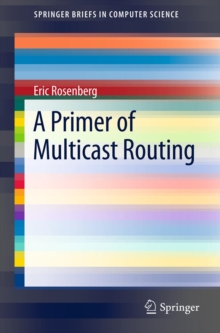
Efficient Algorithms for Discrete Wavelet Transform : With Applications to Denoising and Fuzzy Inference Systems PDF
by K K Shukla, Arvind K. Tiwari
Part of the SpringerBriefs in Computer Science series
Description
Due to its inherent time-scale locality characteristics, the discrete wavelet transform (DWT) has received considerable attention in signal/image processing.
Wavelet transforms have excellent energy compaction characteristics and can provide perfect reconstruction.
The shifting (translation) and scaling (dilation) are unique to wavelets. Orthogonality of wavelets with respect to dilations leads to multigrid representation.
As the computation of DWT involves filtering, an efficient filtering process is essential in DWT hardware implementation.
In the multistage DWT, coefficients are calculated recursively, and in addition to the wavelet decomposition stage, extra space is required to store the intermediate coefficients.
Hence, the overall performance depends significantly on the precision of the intermediate DWT coefficients.
This work presents new implementation techniques of DWT, that are efficient in terms of computation, storage, and with better signal-to-noise ratio in the reconstructed signal.
Information
-
Download - Immediately Available
- Format:PDF
- Publisher:Springer London
- Publication Date:26/01/2013
- Category:
- ISBN:9781447149415
Other Formats
- Paperback / softback from £40.05
Information
-
Download - Immediately Available
- Format:PDF
- Publisher:Springer London
- Publication Date:26/01/2013
- Category:
- ISBN:9781447149415










